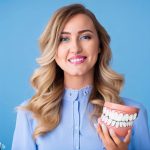PREMEDICATION refers to administering a drug to a patient before any dental procedure, aiming to calm and cooperate with the treatment. Its primary objectives are to alleviate apprehension and prevent any resistance during the process. Skillfully using premedication agents can be remarkably beneficial, particularly when dealing with child patients.
Every dental professional understands that treating children with necessary drugs poses unique challenges. To ensure optimal effect, careful consideration must be given to the route of administration (oral or injection), the appropriate choice of agents, and the correct dosage.
While preoperative sedation isn’t a substitute for psychological techniques, when combined with specific medications, it significantly expands the range of treatable patients in the office setting. The ideal agent should be effective at a dosage that minimally affects vital signs, allowing for a swift recovery and exhibiting a low prevalence of adverse reactions.
Among the best premedication agents is the well-known “laughing gas” nitrous oxide. However, many dentists prefer the oral route for preoperative sedation in children due to its proven efficacy, despite occasional variability in absorption. The oral method is a safe delivery system that children are less likely to perceive as threatening or suspicious.
Chloral hydrate, sold under the brand name Notec, is the oldest drug in the hypnotic group, bearing resemblance to a barbiturate. Administered as a syrup, the child can take two spoonfuls 45 minutes before the dental appointment. A drawback is the absence of a specific antidote to counter any adverse effects, if they occur. Nonetheless, side effects are minor, although the taste is sometimes reported as objectionable.
Historically, hydrazine has been a popular sedating agent for children. Available as Atarax and Vistaril, it not only tranquilizes but also prevents vomiting, inflammation, and muscle tension. Tablets of 25mg and 50mg, as well as suspensions and injections, are available.
Recently, diazepam, widely prescribed for adult anxiety, has gained popularity for preoperative sedation in children. Some recommendations suggest administering a dose the night before and the day of the dental appointment to achieve optimal sedation.
Proethazine is commonly used in medicine and dentistry as a co-medication for narcotic agents, alongside other similar drugs like meperidine and alphaprodine.
Parents and guardians must understand the potential risks of giving any premedication agent to a child without the consent and supervision of a dentist. This article does not provide specific dosage information concerning the child’s weight or the type of dental procedure, which is crucial for determining the appropriate drug and dosage. Additionally, factors such as the child’s mental state (e.g., hysterical), age, medical history, and clinical status must be taken into account before prescribing premedication.



